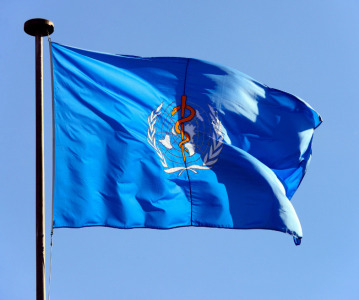FDA accepts BLA for avelumab for the treatment of metastatic MCC for Priority Review

If approved by the FDA, avelumab could be the first treatment indicated for patients with metastatic Merkel cell carcinoma.
Merck and Pfizer have announced that the FDA has accepted for Priority Review the Biologics License Application (BLA) for avelumab, which was submitted by EMD Serono, the biopharmaceutical business of Merck in the US and Canada. This review relates to avelumab’s proposed use in patients with metastatic Merkel cell carcinoma (MCC), based on tumour response results from the JAVELIN Merkel 200 trial. Avelumab is an investigational fully human anti-PD-L1 IgG1 monoclonal antibody and could be the first treatment indicated for metastatic MCC in the US, if approved.
“We are pleased the FDA has granted a Priority Review designation for avelumab,” said Luciano Rossetti, Executive Vice President, Global Head of R&D at the biopharma business of Merck. “There are currently no approved treatment options for metastatic MCC, and we are committed to working with the FDA to potentially bring the first approved cancer immunotherapy to patients with this aggressive disease.”
The avelumab metastatic MCC BLA submission is supported by data from JAVELIN Merkel 200, a multicenter, single-arm, open-label, Phase II study of 88 patients with metastatic MCC, whose disease had progressed after at least one chemotherapy treatment. The JAVELIN Merkel 200 study represents the largest data set of any anti-PD-L1/PD-1 antibody reported in this patient population. These data were presented in June 2016 at the Annual Meeting of the American Society of Clinical Oncology (ASCO) and published in the Lancet Oncology in October 2016.
“Metastatic Merkel cell carcinoma is an aggressive disease, and patients face a very poor prognosis, with less than 20 percent surviving beyond five years,” said Chris Boshoff, Senior Vice President and Head of Immuno-oncology, Early Development and Translational Oncology, Pfizer Global Product Development. “We are encouraged by the results of our Phase II trial and believe avelumab may have potential to be an important treatment option for patients living with this hard-to-treat skin cancer.”
Related News
-
News Pharmaceutical industry supports COP28 health stance in joint statement
As COP28 takes place over this week in Dubai, UAE, several bodies in the pharmaceutical and health industries have come together to announce support of key movements in sustainability in the sector, and to recognise sustainability as a health issue.&nb... -
News Biden backs Cold-War measures to shore-up medical supply chains
In a recent strategy to combat rising inflation and the cost of living crisis, President Joe Biden has invoked a Cold War-era act to increase investment in a selection of medicines and supplies. -
News CPHI Podcast Series: What does the changing US Pharma market mean for industry and patients alike?
In this week's episode of the CPHI Podcast Series Lucy Chard, Digital Editor for CPHI Online is joined by James Manser to discuss the political and market changes in the US pharma field. -
News Which 10 drugs are open to price negotiation with Medicare in the USA?
The Centres for Medicare & Medicaid Services, under the Biden administration in the USA, has released a list of the 10 drugs that will be open to price negotiations as part of the new legislation under the Inflation Reduction Act (IRA). -
News 10 Major Drug Approvals So Far in 2023
Last year, 37 novel drugs were approved by the FDA, this was a high number for such a category, and covered many fields including oncology, demonstrating how promising further research is, and how it is only continuing to build. To date, there are alre... -
News Novartis agrees for copies to be made of cancer drug to reach poorer countries
Novartis signs agreement with MPP to have generics of it's leukemia drug made so that it can be more easily distributed to the world's poorer countries. -
News CPHI Podcast Series: outsourcing and manufacturing trends
Listen to the CPHI Podcast Series this June to hear Gil Roth of the PBOA speak with Digital Editor Lucy Chard about the biggest trends and topics to watch in pharma outsourcing and manufacturing at the minute. -
News New WHO health emergency guidelines expect full transparency from Big Pharma
The WHO are proposing a new set of pandemic guidelines to set out how future global health crises should be handled.
Position your company at the heart of the global Pharma industry with a CPHI Online membership
-
Your products and solutions visible to thousands of visitors within the largest Pharma marketplace
-
Generate high-quality, engaged leads for your business, all year round
-
Promote your business as the industry’s thought-leader by hosting your reports, brochures and videos within your profile
-
Your company’s profile boosted at all participating CPHI events
-
An easy-to-use platform with a detailed dashboard showing your leads and performance







